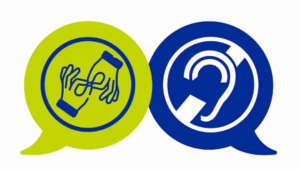In the first part of this blog series, we covered the differences between virtual classroom trainings and in-person courses. Here, we’ll expand to give you tips to prepare for your virtual course. Proper preparation is the key to success. Feeling grounded and ready will give you the best foundation for retaining information as you begin your class.

How should I prepare for my virtual classroom course?
-
Gather Materials:
- The first step to proper preparation is to gather your course materials. This falls into two categories: given materials and self-collected materials. Given materials include welcome packets, supplementary texts and exercises, daily agendas, quizzes, etc. Your course organizer should send these at least a few days in advance. If your course is set to start within three days and you haven’t received any supplemental materials, ask via e-mail. This has the twofold benefit of being sure you’re on the right track and showing that you’re excited to learn. Self-collected materials include pens, pencils, notepads, binders, and laptop or tablet. We recommend that you prepare your self-collected materials as you would for an in-person course. This gives continuity to the learning experience and ensures that you’ve planned for anything you need.
-
Do at-home study:
- Briefly review the given materials before your course starts. It’s not necessary to know them by heart (unless directed) but familiarizing yourself gives you a head start. As the course is online rather than in-person, it might be difficult to ask questions during lecture periods. Reviewing the material beforehand allows you to write out questions you’d like to ask so you don’t forget them.
-
Prepare your Workspace:
- Set up a quiet workspace for your course. This doesn’t necessarily have to be a desk—a table works just as well. Set up your workspace in the same way each morning of your course. Be sure to have a pen or pencil, notepad, and any supplementary materials close by. The goal is to simulate the space you’d have during an in-person course as well as possible.
-
Test your equipment the night before:
- Do a quick test to make sure that your laptop or tablet is in working condition ahead of the start time. Charge overnight and keep your charger nearby. This is also an excellent time to make sure you have the video link. If you have any log in information for a specialized system, make sure that’s working too. E-mail your course organizer if you need help and troubleshooting techniques aren’t working.
-
Log on 15 minutes early:
- Lastly, log on to the system fifteen minutes early. If your course organizer doesn’t allow early log-ons, be seated and reviewing notes fifteen minutes before the class start time. Being early and prepared shows your organizer that you’re serious about the course. It’s also your part in allowing the course to start on time and run smoothly.
Global Arena’s 16-Hour Virtual Classroom Interpreter Training
Now that you’re fully prepared for your virtual classroom course, it’s time to choose which to take! There are myriad options for interpreters, depending on your specialty and interests. As a beginner interpreter, it’s best to take a course that covers a wide range of topics. This gives you a broad foundation for your career start and introduces you to the industry as a whole.
At Global Arena, we pride ourselves on our reputation for providing top-quality interpreter training programs and services. We’ve continued our interpreter trainings through the COVID-19 pandemic, switching to virtual classroom and expanding our online offerings. An example is our 16-hour Interpreter Training Course, successfully transitioned to a fully-online model. The course is especially targeted to interpreters who are starting out and want to hone their skills. It’s also perfect for experienced interpreters who’d like to brush up on their industry knowledge and work through skill-building activities.
Interpreter training standards
Our training program meets all NBCMI and CCHI interpreter training standards. The 16-hour Interpreter Training provides a certificate of interpreting training completion. You’ll be able to use this certificate to help you through the national certification process. It’s also immediately useful for working with hiring managers to find an interpreting position.
Each class consists of four days of live (over zoom) instruction, reviews, an exam, and a certificate upon completion and passing. The course integrates interpreting activities and practice into each module. It’s structured to be interpreting experience-centric: being an interpreter requires training, patience, understanding, and skill. Course focuses include the differences between bilingual speakers and trained interpreters, the role of the interpreter, and proper conduct. We also cover best practices, interpreting ethics, industry basics, and “dos and don’ts” for working as an interpreter. We’ll discuss common medical, legal, and school terminology and how to troubleshoot difficult situations. As we’re currently experiencing a global pandemic, we talk about how to properly use PPE during in-person interpreting. The course also allows practice and discussion about telephonic interpreting (OPI) and video-remote interpreting (VRI).
Our training has the added benefit of building your interpreting network: as you’re working together, the classes form a community. You’ll meet other interpreters of widely varying skill levels, learn from their expertise, and work closely to build your own. Our activities and discussions are excellent times to “troubleshoot” interpreting scenarios and share experiences. You’ll also have the opportunity to discuss the interpreting industry: particularly in improving conditions through standardized practice. Interpreting is more than a job: it’s skill, service, and vitality for non-English speaking communities in America. Global Arena’s 16-hour Interpreter Training is committed to building the foundation for a successful interpreting career.
For more information and sign-up, visit our Global Arena Interpreter Training page today!




